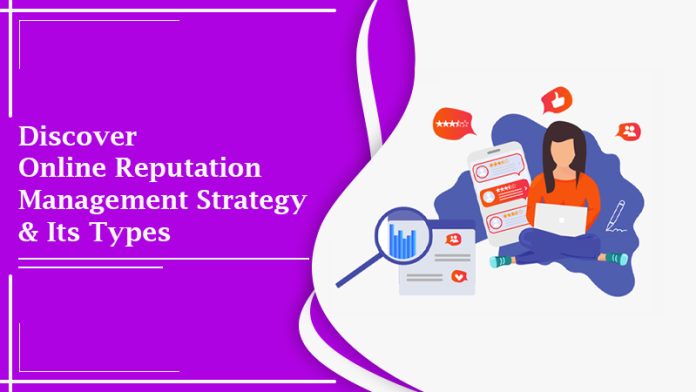Online Reputation management is an umbrella term that refers to a large group of devices and techniques that you can send with the ultimate objective.
Why is Online Reputation Management Strategy Important?
It improves and keeps up with the internet-based picture you wish to convey. Whether you own a business or basically need to maintain your personal reputation. An Online reputation management strategy gives methodologies for developing a positive online reputation. It is an approach to molding what shows up in your search results in the event that somebody looks for your name or your business.
ORM strategies include observing and answering reviews assuming you own a business and arranging social media content that is predictable to your brand. For people, ORM includes making individual social media accounts private so future businesses just see you in an expert light. With an ORM plan, you can follow and take out digital threats, remove fake Reviews, eliminate content that infringes on your intellectual property, and take control of your online profiles.
ORM can assist you with distinguishing negative or fake content and eliminating it so it won’t hurt your reputation. Basically, online reputation management is an approach to ensuring others possibly see what you need them to see when they search your name.
Online Reputation Management Strategy: Top 3 Strategies
1. Respond Promptly and Empathically
Once in a while, the best ORM occurs before a negative comment or review is posted. Whenever clients get clarification on some things, whether by messaging you straightforwardly or posting on social media, you ought to answer immediately.
A study discovered that 83% of individuals anticipate that reactions should social media comments in a day or less, so don’t wait too long. Quick replies prevent customers from posting negative feedback and show the client you put a high worth on helping them.
Similarly significant is replying with sympathy. Tell the client you are putting resources into taking care of their concern and that, at last, you are there to help.
2. Make sure you’re on top of your search results
Most advertisers consider SEO services a method for keeping their brand noticeable. But at the same time, it’s a fundamental instrument for limiting the visibility of negative press and content related to your brand.
Preferably, you need your company’s page to appear first when your company’s name is searched. After all, the number one result on SERPs gets more than 31% of all clicks, and customers are 10 times more likely to click on the first search result than on a page 10 spots down.
Use an incognito window to monitor your brand’s search lists so you see what customers see. As a result, you may need to bid on your own keywords to maintain the top ranking. It is because competitors can bid on your branded keywords to make their information appear first.
3. Manage your online reputation automatically
Rather than physically sifting through websites and social media all alone, save time by utilizing programming that mechanizes ORM tasks.
One of the easiest monitoring tools is Google Alerts. You simply need to do is enter your brand name in the tool, and get notices of media and reports that discussion about your brand. Like that, you will know immediately when your company is being discussed, and you can quickly answer if important.
The tool Brand24 goes above and beyond. Rather than simply scrolling news and stories, it also monitors social media for mentions of your brand. It might play out as an “opinion examination,” looking at key emotional words in surveys to tell you how individuals feel about your brand.
SEMrush assists with search ranking by following the SERP places of your brand and competitors. It goes beyond simply scrolling sites and gathering notices of your brand by performing site reviews to tell you the best way to make your company oversaw pages rank higher.
By developing these automatic tools, you’ll have more time to focus on high-level ORM tasks, such as repairing and strengthening relationships with unhappy customers.
CONCLUSION
Consumers are increasingly looking to the internet for all questions and complaints about brands, which makes the Online Reputation Management strategy a more vital function. While implementing marketing strategies, keeping an eye on such information is important.







